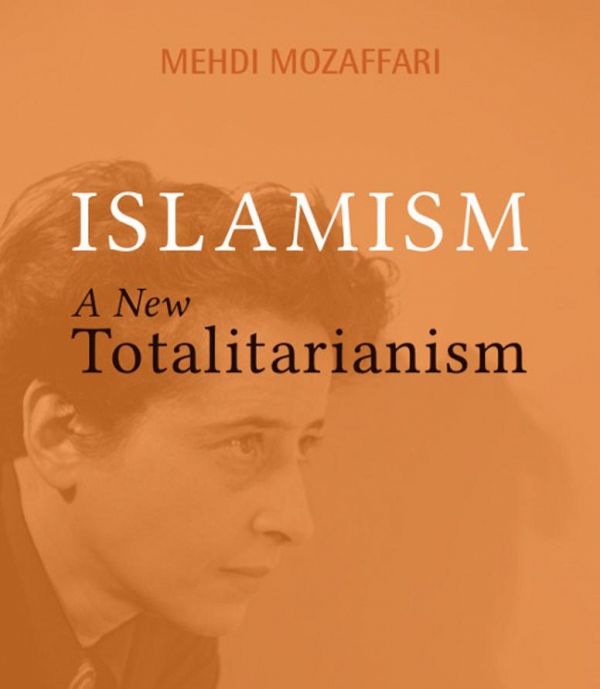Kevin Bain reviews a new book on whether Islamism is “totalitarian”, as well as Robert Manne’s investigation into the Islamic State.
Islamism – a new totalitarianism by Prof. Mehdi Mozaffari
How should we see the relationship between the religion of Islam and the political project of Islamism?
Professor Mehdi Mozaffari believes there is no consensus on “true” Islam, but there is on Islamism: a totalitarian interpretation of the religion, which aspires to global conquest by any means. Its roots go back to the end of Ninth Century CE, when a nostalgia for the Prophet’s golden Medina period (622-632 CE) emerged.
The author is an exiled political scientist from Tehran University and witnessed the 1979 Ayatollah Khomeini-led revolution against the Shah of Iran, but didn’t like either leadership. He therefore has a personal perspective and an insider perspective of Islam which makes this an informative book. In a crowded field of analysis, he favours the generic analysis of “isms” used by philosophers Karl Popper and Hannah Arendt.
We also get the grand history of Islamism, its doctrinal debates and factions, and the big 20th Century events, from the end of the Ottoman Empire (1299-1924 CE) to the founding of the Muslim Brotherhood in Egypt in 1928, the Wahabi-inspired formation of Saudi Arabia in 1932, and Israel’s 1948 creation by the West deep in Islamic territories. The recent revival was stimulated by the first Islamist government in history – in Iran – and the Russian defeat by the mujahedeen in Afghanistan. Then we had Al-Qaeda’s formation in 1998 when – for the first time in 14 centuries, so Prof. Mozaffari tells us – a Muslim group condoned and encouraged atrocities against civilians everywhere.
Elsewhere, there is religious supremacism amongst non-Muslim groups, such as Indian Hindus. Since religion is only one factor in politics, another approach to his original question could be to look at the other influences. Until the 1960s, he says, the other “isms” – of nationalism, socialism, authoritarianism, pan-Arabism and liberalism – were dominant in Muslim societies. In relation to the Arab Spring revolutions in Egypt and Tunisia, Mozaffari says these were secular rather than religiously inspired, with the Muslim Brotherhood split into many factions.
He notes the lack of affinity and connections between the Palestinian groupings Fatah and Popular Front for the Liberation of Palestine (PFLP) and the Islamists Al-Qaeda or ISIS — with the former just wanting an end to the Israeli occupation.
Indeed, then Palestinian leader Yasser Arafat rebuked bin Laden in 2002:
”I’m telling him directly not to hide behind the Palestinian cause …. He never helped us. He was working in another, completely different area and against our interests.”
National Islamism in Kashmir, Lebanon and Chechnya is also different. Notions of victimhood and failure amongst ethnic or national groups play out where they can have influence domestically.
Of interest to Australians, but not mentioned here, is the role of Islam in Southeast Asian countries such as Indonesia, the world’s biggest Muslim majority country (87 per cent) and third largest democracy, with five other religions having equal legal status.
Professor M.C. Rickleffs has thoroughly documented the deepening Islamisation of Indonesian society, especially after the fall of Suharto decreased the central state’s authority. This includes the growth of the Islamic justice system, dress norms and cultural expression, stronger religious education and observance, piety among the educated middle class, and less distinction between the spiritual and secular life.
Although religious political parties get low votes at the national level, recent events in our northern neighbour suggest there has been infringement of democracy and free speech, the State ceding authority to Islamic clerics, and restricting the lifestyles and beliefs of non-Islamic minorities. It seems that weak judicial and governmental institutions can bend to Islamic pervasiveness, resulting in a majoritarian domination of minorities. Both the current and previous presidents have accommodated these pressures and church-state separation is increasingly contested. But this struggle will cause polarisation and intensify the contest, as has happened over a long period in central Java. For Indonesian Muslims, Rickleffs also suggests notions of justice – for individuals relative to the group – are more salient than individual freedom, which are seen as disruptive to the group.
At an airport bookshop near you is Graham E. Fuller’s A World without Islam. Don’t jump to conclusions from the title — it is a strong historical argument for geopolitical causation, or religion as a convenient vehicle for anti-imperialist, local and ethnic grievances which follow their own intrinsic course. If Fuller is right, Indonesia will see a reversion, as it has less of these grievances.
When a sacredness and a divine right philosophy is preferred to natural rights, Mosaffari suggests more discrimination and less freedom and equality is the result. He says when “reform” of Islam is discussed, whether in liberal or fundamentalist Islamic circles, it is usually not about modern values of secularism, freedom and equality, but returning Islam to its original message — modernisation without modernity.
How will this end? Writing in early 2017, Mosaffari concludes that there are limits to Islamist global reach, although non-state jihadists will be an ongoing problem. The deep divisions within Islamists and in Muslim countries, many of which are despotic and divided, hold them back; Western military interventions creating more wars and terrorism help them.
‘Islamism – a new totalitarianism‘ by Prof. Mehdi Mozaffari is published by Lynne Rienner Publishers, Boulder, 2017. (PB, 345pp, RRP $45.99)








































admin in: How the Muslim Brotherhood betrayed Saudi Arabia?
Great article with insight ...
https://www.viagrapascherfr.com/achat-sildenafil-pfizer-tarif/ in: Cross-region cooperation between anti-terrorism agencies needed
Hello there, just became aware of your blog through Google, and found ...